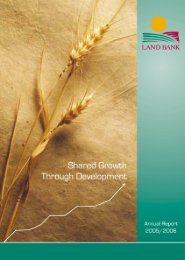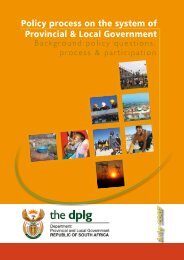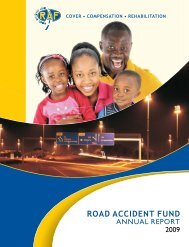Human Settlements Review - Parliamentary Monitoring Group
Human Settlements Review - Parliamentary Monitoring Group
Human Settlements Review - Parliamentary Monitoring Group
Create successful ePaper yourself
Turn your PDF publications into a flip-book with our unique Google optimized e-Paper software.
<strong>Human</strong> <strong>Settlements</strong> <strong>Review</strong>, Volume 1, Number 1, 2010<br />
5. Developments in the<br />
application of suppressed<br />
demand in future<br />
applications<br />
It may be possible to develop a methodology<br />
to apply suppressed demand principle to<br />
any one of a range of services. This is being<br />
attempted in the development of large-scale<br />
methodologies for thermal performance<br />
and solar water heating. What has been<br />
understood from this experience of having a<br />
CDM project validated with these elements<br />
is that the suppressed demand concept can<br />
effectively be applied to energy efficiency as<br />
well as energy service supply using cleaner<br />
energy technologies.<br />
The principle application of the concept to a<br />
situation is not only suppressed as a result<br />
of poverty but also/rather by lack of access<br />
to “modern” energy service. The poverty<br />
and lack of access nexus by and large will<br />
fit squarely with the same areas that are the<br />
focus of the Millennium Development Goals.<br />
Using a suppressed demand entry point to<br />
these remote areas’ development, could<br />
leverage the much needed underlying finance<br />
for further development. With the advent of<br />
some details on the CDM Programme Activity<br />
(UNFCCC 2006), the transaction costs and<br />
the ease of registering activities under a<br />
Registered Programme of Activities (PoA) that<br />
allows for the registration of multiple project<br />
activities under one design document (through<br />
increasing net revenue from the activity) will<br />
contribute to facilitating access to underlying<br />
project finances even in public sector<br />
projects. In private sector activities such as<br />
agricultural processing, extractive industries,<br />
small industrial/commercials concerns etc.<br />
the income from the generation of credits<br />
should by definition result in the removal of<br />
barriers to investment in the project activity’s<br />
implementation.<br />
6. Conclusions<br />
Suppressed or growing demand is an<br />
important issue, especially in the context of<br />
small-scale CDM projects and Demand Side<br />
Management involving end users of energy<br />
services. Bringing down the emissions and<br />
demand trajectories of developing countries<br />
will only be possible, if the expected and<br />
hoped for increase in economic activity uses<br />
high-efficiency, lower emissions technologies<br />
and builds on current energy management<br />
behaviour. Even if emissions do not decrease<br />
with respect to the current level, they do<br />
decrease with respect to the level that would<br />
have been reached had a less-efficient<br />
technology been used. The current rules CDM<br />
and EEDSM do not explicitly define suppressed<br />
demand, and for this concept to be employed<br />
this is essential. We show that taking account<br />
of suppressed demand is a powerful way of<br />
leveraging green house mitigation interest in<br />
avoiding future emissions from locations and<br />
increasing demand for electricity, which have<br />
increasing livelihoods and are likely to satisfy<br />
basic energy service needs in the future. A<br />
key challenge for research is now to get a<br />
consensus on the level of suppressed demand<br />
and the acceptable (real and measurable)<br />
methods to predict this.<br />
To get projects expressly utilising the climate<br />
mitigation mechanisms and EEDSM to the<br />
most marginalised, the energy poor and the<br />
230




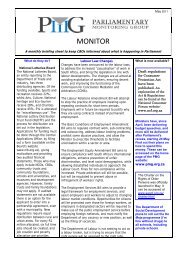
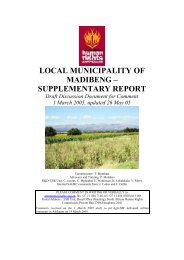
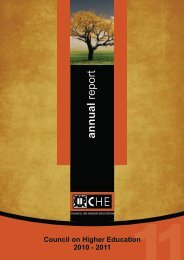
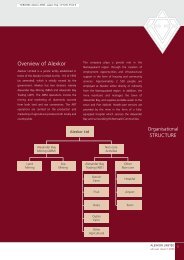
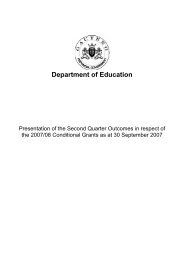
![National Research Foundation Annual Report 2008 / 2009 [Part 2]](https://img.yumpu.com/49774036/1/177x260/national-research-foundation-annual-report-2008-2009-part-2.jpg?quality=85)

